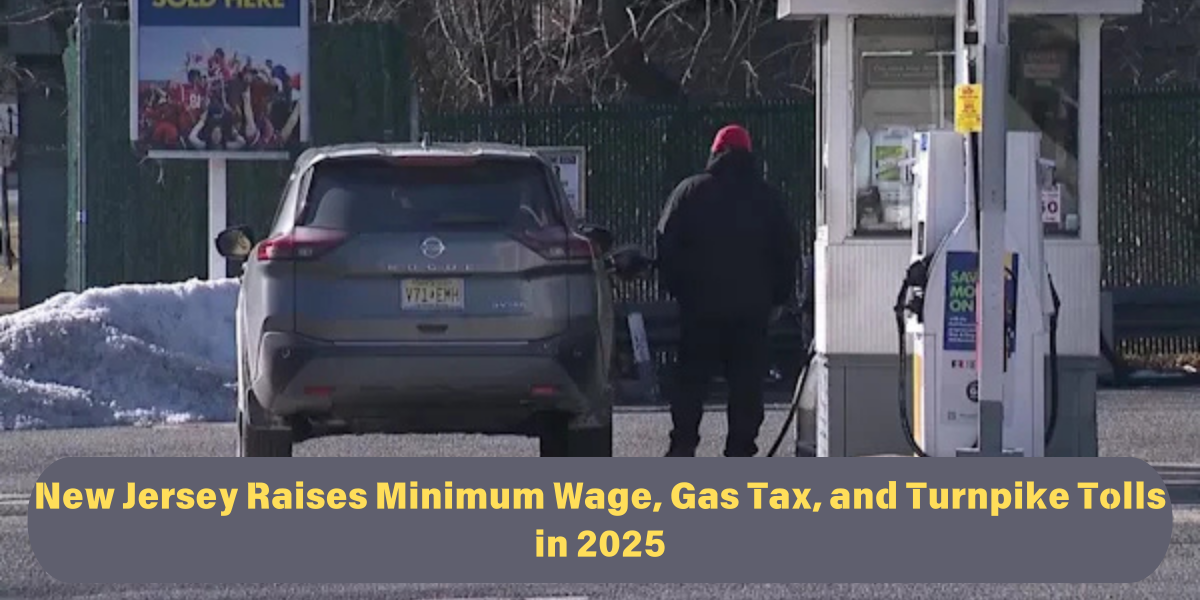NJ (latestsports)– As 2025 kicks off, New Jersey residents are feeling the pinch in their wallets. From higher gas prices to increased tolls and rising wages, it’s a year of change for the Garden State. But the state assures there’s a purpose behind these increases, especially when it comes to funding essential infrastructure and improving workers’ pay.
Gas Tax Up, Tolls Rising
One of the most immediate impacts for New Jersey drivers is the rise in the gas tax. Starting in the new year, the state’s gas tax increased by 2.6 cents per gallon. That means drivers are now paying nearly 45 cents per gallon for gasoline and 51 cents per gallon for diesel — the highest rates seen in the last four years.
The hike in gas taxes is part of the state’s plan to raise $11 billion for transportation infrastructure projects by 2029. The Department of the Treasury notes that these funds are critical for maintaining and upgrading roads and bridges, ensuring the state’s infrastructure keeps up with growing demands.
In addition to higher fuel costs, drivers will also feel the impact of the New Jersey Turnpike’s 3% toll increase, which took effect on New Year’s Day. The toll hike is expected to add about 16 cents to the average trip, and tolls have risen by 15% over the past five years. The Turnpike Authority has committed to spending more than $1 billion annually on capital projects to improve roads and bridges, furthering the goal of building a more reliable transportation network.
Minimum Wage Continues to Rise
Along with higher transportation costs, workers in New Jersey are also seeing a change in their paychecks. New Jersey’s minimum wage, which has been steadily increasing for the past six years, rose again on January 1, 2025. The new rate is now $15.49 per hour, marking a 36-cent increase from last year.
This adjustment is based on the Consumer Price Index, meaning it reflects the overall rise in living costs. While this year’s wage bump is smaller than those of previous years, New Jersey’s minimum wage remains among the highest in the country. However, it still lags behind those in New York, Connecticut, California, and Washington.
What This Means for New Jersey Residents
As 2025 unfolds, New Jersey residents will have to adjust to these rising costs. For drivers, it means higher expenses at the gas pump and on the toll roads. For workers, the increased minimum wage provides a small buffer against inflation. But the state maintains that these changes are necessary to fund vital infrastructure projects and ensure workers are paid fairly in an economy that’s constantly evolving.
New Jerseyans are encouraged to plan ahead, save, and stay informed about further changes as the year progresses. While the increases may feel heavy at first, they are part of a long-term strategy for improving the state’s economy and infrastructure.




